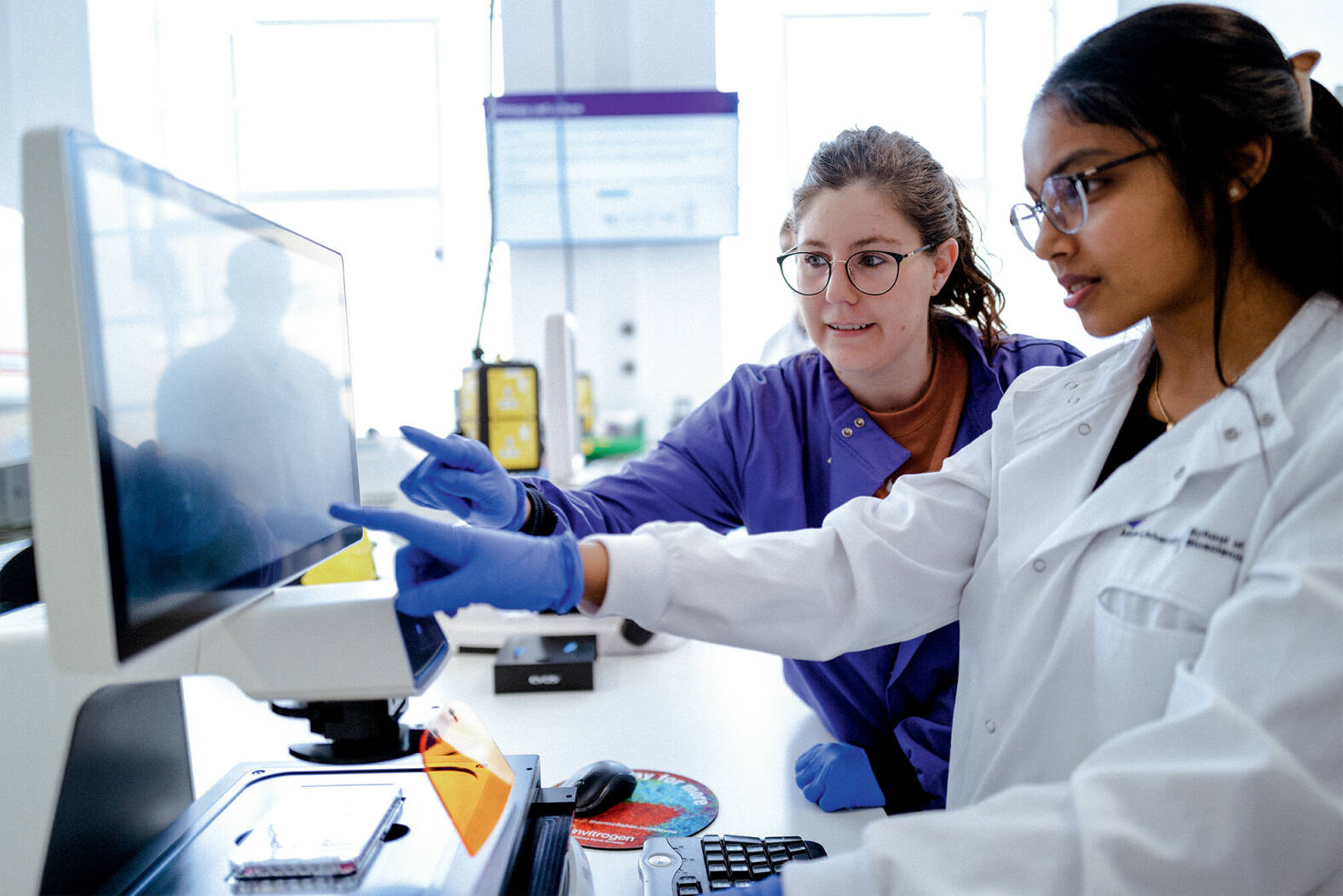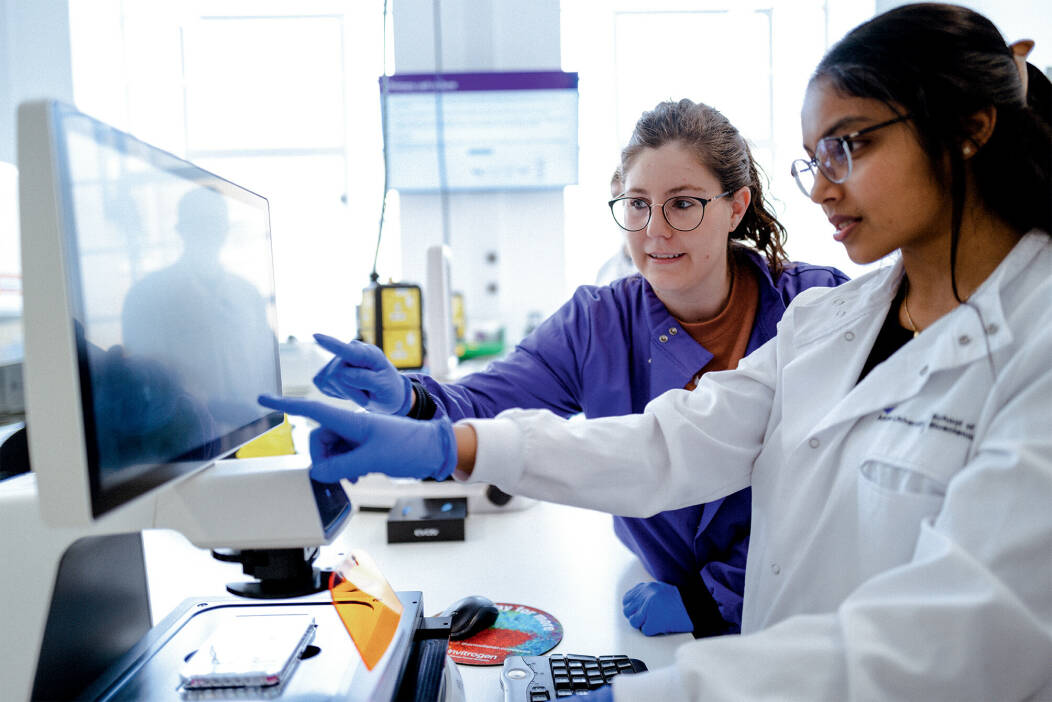2030 Priorities and Ambition
Strategic Objectives
Foreword
Our Vision, Purpose, and Values
Navigating the Challenges
Measures of success
Securing our future
Strategic Themes






Weak growth, income inequality and structural issues such as skills shortages and an ageing population dominate the UK’s economy. Exiting the EU and the Covid-19 pandemic had a particularly damaging impact on the West Midlands’ economy, as previously impressive economic growth has been replaced by the slowest recovery to pre-pandemic levels of gross domestic product (GDP). In Birmingham, the economic reality is one of inequity: 37% of the city’s children and young people live in relative poverty and health inequities are stark.
Universities have a critical role to play in this; to act as catalysts and assume their responsibility to seek to understand the challenges of our time, and work with people, communities and industries to find the most appropriate responses and solutions. Our 2030 strategy will actively embrace these challenges and seeks better solutions for our beneficiaries.
Inequality and inequity
A whole system transformation is needed if the world is to avoid an accelerating climate disaster. This must involve both reducing carbon emissions and preparing for the inevitable impacts of climate change. Transformation must take place at micro and macro levels, within individual organisations, locally, regionally, nationally, and globally and it must be underpinned by research, innovation, and advanced skills.
Climate change
Decades of technological advancement have ushered in new levels of global connectivity and accessibility, but this closeness is threatened by geopolitical uncertainty. Pushback against longstanding institutions and norms, war in Europe, and the use of false news as a political tool are amongst some of the complex challenges that universities themselves must navigate, whilst supporting others to do so. This will require a concerted, collaborative effort with partners across the globe.
Shifting geopolitics
We are immersed in a digital era: the Fourth Industrial Revolution. Post-Covid-19, our society moved to more flexible working and learning, and we are in the midst of developing digital health solutions, digital manufacturing and digitally-enabled service models, with intelligent data analytics and artificial intelligence underpinning much of these developments. Cycles of technological advances and innovation are now measured in months rather than years or decades, bringing both opportunities and risks. Exponential technological change is redefining the nature of work, with many jobs changing or set to become obsolete. Communities must be equipped with the emerging and advanced skills needed for the future of work so that they can operate in high value-add jobs, within a global knowledge-based economy. Higher education, as a pathway towards high value-add jobs, must prepare for projected rises in demand.
Technological advances


We operate within a rapidly changing world, facing major challenges, within both a local and global context, including exponential technological advances, climate change, shifting geopolitics, and widening inequalities and inequities. In the UK, we are experiencing poor economic performance and a pervasive productivity problem, alongside post-Brexit and post-Covid-19 economic uncertainties, and widening social and health inequities. Locally, our young, superdiverse and entrepreneurial city is at a crossroads, building on its impressive past legacy, whilst seeking to reinvent itself and take its rightful place in the next industrial revolution.
NAVIGATING THE CHALLENGES OF OUR TIME
Weak growth, income inequality and structural issues such as skills shortages and an ageing population dominate the UK’s economy. Exiting the EU and the Covid-19 pandemic had a particularly damaging impact on the West Midlands’ economy, as previously impressive economic growth has been replaced by the slowest recovery to pre-pandemic levels of gross domestic product (GDP). In Birmingham, the economic reality is one of inequity: 37% of the city’s children and young people live in relative poverty and health inequities are stark.
Universities have a critical role to play in this; to act as catalysts and assume their responsibility to seek to understand the challenges of our time, and work with people, communities and industries to find the most appropriate responses and solutions. Our 2030 strategy will actively embrace these challenges and seeks better solutions for our beneficiaries.
Inequality and inequity


Decades of technological advancement have ushered in new levels of global connectivity and accessibility, but this closeness is threatened by geopolitical uncertainty. Pushback against longstanding institutions and norms, war in Europe, and the use of false news as a political tool are amongst some of the complex challenges that universities themselves must navigate, whilst supporting others to do so. This will require a concerted, collaborative effort with partners across the globe.
Shifting geopolitics

A whole system transformation is needed if the world is to avoid an accelerating climate disaster. This must involve both reducing carbon emissions and preparing for the inevitable impacts of climate change. Transformation must take place at micro and macro levels, within individual organisations, locally, regionally, nationally, and globally and it must be underpinned by research, innovation, and advanced skills.
Climate change

Technological advances

We are immersed in a digital era: the Fourth Industrial Revolution. Post-Covid-19, our society moved to more flexible working and learning, and we are in the midst of developing digital health solutions, digital manufacturing and digitally-enabled service models, with intelligent data analytics and artificial intelligence underpinning much of these developments. Cycles of technological advances and innovation are now measured in months rather than years or decades, bringing both opportunities and risks. Exponential technological change is redefining the nature of work, with many jobs changing or set to become obsolete. Communities must be equipped with the emerging and advanced skills needed for the future of work so that they can operate in high value-add jobs, within a global knowledge-based economy. Higher education, as a pathway towards high value-add jobs, must prepare for projected rises in demand.
The context for our 2030 strategy is set by the key trends and challenges outlined.
We operate within a rapidly changing world, facing major challenges, within both a local and global context, including exponential technological advances, climate change, shifting geopolitics, and widening inequalities and inequities. In the UK, we are experiencing poor economic performance and a pervasive productivity problem, alongside post-Brexit and post-Covid-19 economic uncertainties, and widening social and health inequities. Locally, our young, superdiverse and entrepreneurial city is at a crossroads, building on its impressive past legacy, whilst seeking to reinvent itself and take its rightful place in the next industrial revolution.
NAVIGATING THE CHALLENGES OF OUR TIME